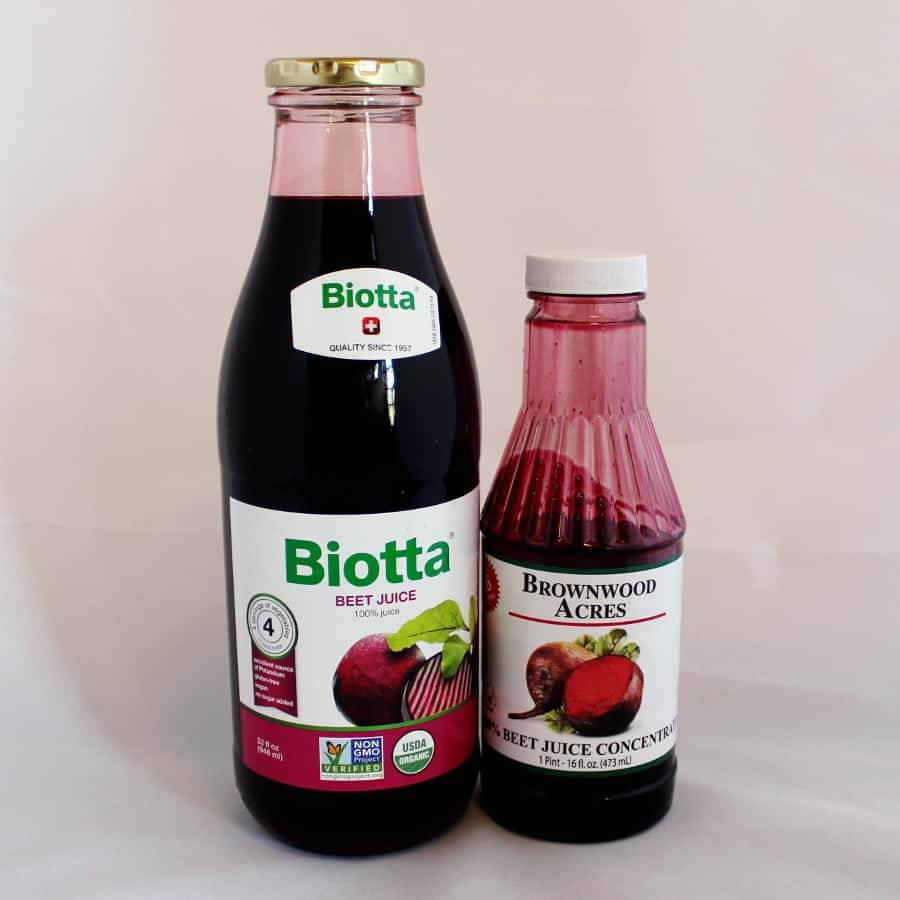
Hippocrates’ warning that the physician should do no harm in the course of treating a condition should also apply to anyone treating themselves with home remedies. An astute reader searching for a blood pressure remedy noted that it might have a serious drawback. Could drinking beet juice increase the risk for kidney stones?
Beet Juice as a Blood Pressure Remedy:
Beet juice has been proposed as a natural way to lower blood pressure. A study shows that just one cup of beet juice daily can lower high blood pressure by roughly 10 points (Hypertension, online April 15, 2013). That is just as good as many prescription medications.
The researchers used spontaneously hypertensive rats to figure out the enzyme responsible for this effect. They located an enzyme active in red blood cells (erythrocytes)and confirmed that this enzyme is also active in human red blood cells. Subsequently, they gave 15 volunteers with hypertension a cup of beet juice as a source of natural dietary nitrate. A cup of water served as the placebo.
The enzyme converts dietary nitrate in beet juice into nitrite. Volunteers had the highest nitrite levels several hours after drinking the juice. However, the scientist detected the effect for nearly the whole day. Nitrite levels in turn are converted to nitric oxide, which relaxes blood vessels to bring down blood pressure. This is a far more detailed understanding of an effect that was reported earlier.
A meta-analysis of 11 randomized controlled trials found that beet juice can lower blood pressure (Biomolecules, Nov. 2, 2018). In summary, the investigators concluded that this could serve as a cost-effective strategy.
What Are the Risks of a Popular Blood Pressure Remedy?
Q. My husband takes medication for his high blood pressure. He’d like to find ways to lower it more naturally, so we are intrigued that you have written about beet juice for blood pressure control.
Unfortunately, he also gets kidney stones. From what I have read, beets and beet juice are high in oxalates. Is that true? It would mean we have to find a different way to lower his blood pressure.
Foods That Boost the Chance of a Kidney Stone:
A. Four decades ago, scientists found that a handful of foods can increase the oxalate content of the urine (Clinical Science, April 1981). They include chocolate, peanuts, beets, rhubarb and spinach. People prone to oxalate-containing kidney stones should avoid such foods.
Beet Juice Is Not the Only Blood Pressure Remedy:
Other natural approaches can also provide blood pressure control, however. Unsweetened pomegranate or cherry juice can both lower blood pressure. For example, participants in a randomized controlled drank two cups of tart cherry juice or a placebo beverage every day for three months (Food & Function, June 20, 2018). Those consuming cherry juice had lower systolic blood pressure and LDL cholesterol.
Other strategies include eating magnesium-rich foods, learning how to breathe slowly and relaxing in a hot tub or sauna. For lots more information about controlling hypertension, you may wish to consult our eGuide to Blood Pressure Solutions.
Citations
- Ghosh SM et al, "Enhanced vasodilator activity of nitrite in hypertension: Critical role for erythrocytic xanthine oxidoreductase and translational potential." Hypertension, online April 15, 2013. https://doi.org/10.1161/HYPERTENSIONAHA.111.00933
- Bonilla Ocampo DA et al, "Dietary nitrate from beetroot juice for hypertension: A systematic review." Biomolecules, Nov. 2, 2018. DOI: 10.3390/biom8040134
- Finch AM et al, "Urine composition in normal subjects after oral ingestion of oxalate-rich foods." Clinical Science, April 1981. DOI: 10.1042/cs0600411
- Chai SC et al, "Impact of tart cherry juice on systolic blood pressure and low-density lipoprotein cholesterol in older adults: A randomized controlled trial." Food & Function, June 20, 2018. doi: 10.1039/c8fo00468d.

